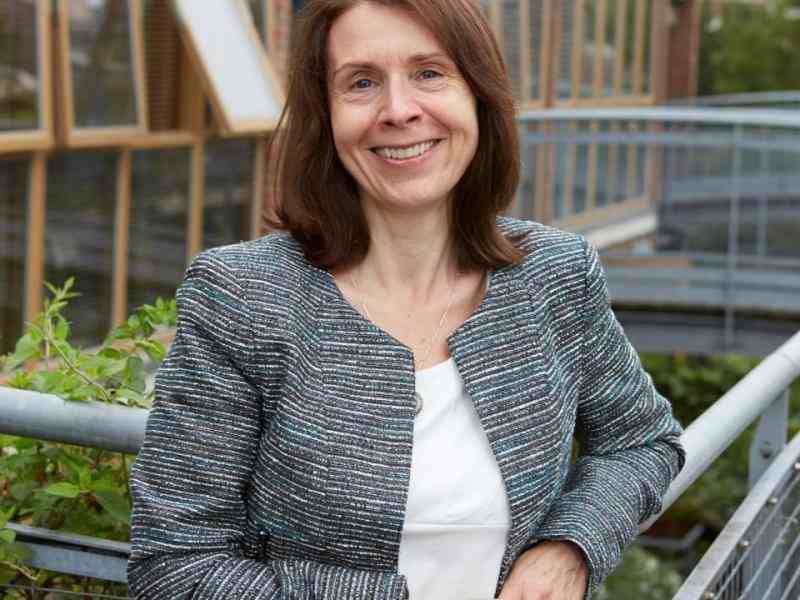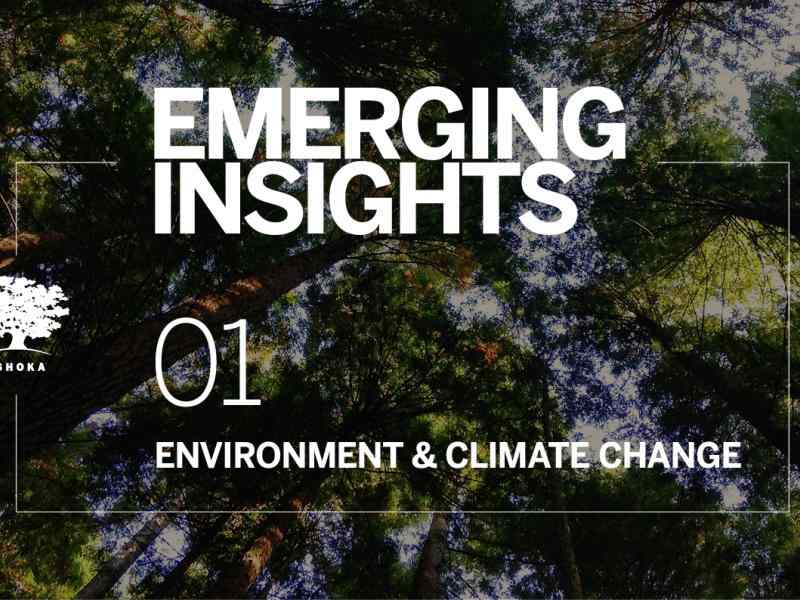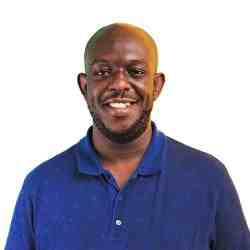Introduction
For the past quarter century, Sue Riddlestone has been a leader in the sustainability movement, pushing the national and global agenda on advancing more sustainable production and consumption. Sue’s early career saw her launch multiple successful sustainable businesses, including Bioregional, and the UK’s renowned eco-community, BedZED. Building on that experience, Bioregional created the One Planet Living framework – a set of guidelines that became a key influence in the creation of the UN’s Sustainable Development Goals. Today the framework is promulgated and supported by a global Bioregional Network of organisations and projects that inspire individuals, institutions and governments to reduce their footprint and create happier, healthier and more sustainable communities.
The New Idea
The multiple constituencies needed to drive sustainability require people and institutions who have legitimacy and familiarity to work across government, corporations and the environmental movement. For the past 25 years, Sue has pioneered programme and policy advances addressing sustainable production and consumption. Working at the level of individuals, communities, corporations and national governments, she has methodically scaled Bioregional's effective sustainability tool and communication approach, One Planet Living, from one UK community to the United Nations level, playing a pivotal role in influencing the Sustainable Development Goals.
The One Planet Living approach continues to show people how to make sustainable living actionable and desirable, with Sue delivering her model through strategic, high-impact partnerships. This model was developed through the learnings BedZED eco-village, which Sue instigated in the 1990s - the first of their kind in the UK. One Planet Living comprises ten easy-to-grasp, interconnected and holistic principles, alongside detailed goals and guidance. Used in combination, they give clear, practical guidance on creating sustainability guidelines and planning for a project, organisation, city or region.
Sue recognised early on that advocacy alone was not enough to reverse the trajectory of mankind living beyond the planetary limits. She set out to develop and showcase how sustainable living could benefit people both economically and personally and founded her organisation, Bioregional, in 1994, to incubate several green businesses offering cost competitive, sustainable products and services, the first of their kind in the UK. Moving into the built environment, she developed the first UK strategy and planning for eco-town implementation and formed major partnerships with some of the biggest global retailers, such as Kingfisher and B&Q, who adopted her One Planet Living model.
Leveraging her evidence base, Sue led the work of Bioregional to engage with the UN Rio+20 sustainable development process during 2011-12, bringing the lessons of Bioregional’s 20 years of practical experience and championing the Sustainable Development Goals. Sue was instrumental in designing SDG12, focused on sustainable consumption and production - essential to One Planet Living. One Planet Living was used by Sue as the communication tool to demonstrate that the other Sustainable Development Goals required an interconnected approach, and as a result SDG12 was woven throughout the other Goals.
Building on her successful efforts in lobbying for the Sustainable Development Goals, Sue’s focus has now shifted to working with others to get them implemented. The SDGs were designed to guide governments and are therefore quite high level. One Planet Living is a tool that enables people and organisations to implement the SDGs: it is about everyday lives, and is easy to understand and use. She is currently leading strategically on Bioregional’s work to scale the use of the One Planet Living framework through training, a digital platform, and an international ‘One Planet Cities’ project, bringing together councils, organisations, businesses, schools and community groups in Canada, Denmark, South Africa and the UK. The project is creating an international network of knowledge-sharing designed to accelerate sustainable city planning and best practice.
Her unique ability to build prominent, global and cross-sector partnerships is instrumental in how Sue works; she continues to build and strengthen the Bioregional-founded national and international coalitions of environmental champions, inspiring partners to develop new ways to implement the One Planet Living approach.
The Problem
Globally, humans are consuming naturally-renewing resources and polluting the planet at a level 40% higher than the Earth can sustain. Ecological foot printing shows that if everyone in the world consumed as many natural resources as the average person in western Europe, we would need three planets to support us. If everyone consumed as much as the average North American, we would need five planets.
The major cause of the continued deterioration of the global environment is the escalating and unsustainable pattern of consumption and production, particularly in industrialised countries. The modern economy relies heavily on extracting raw materials from the Earth and processing these into parts and products, which are eventually discarded. A far greater threat comes from the rapid spread of industrialisation and urbanisation, along with lengthening and increasingly global supply chains. These lead to mass production and consumption of an ever-wider range of goods and services, without the accountability that we once had when we could see how goods were produced.
Climate change planning is not yet in place to cope with the anticipated human population migration or rural to urban population movement. As the world population is anticipated to increase from 7 billion to over 9 billion in 2050, nearly 70% is projected to be living in urban areas. Without a sustainable growth model, the planet is unable to support the 80% more energy required for a world economy four times larger than today's.
Even with various agreements in place, such as the Greenhouse Gas Mitigation actions pledged by countries in the Cancún Agreements, they will not be enough to prevent the global average temperature from exceeding the 2 degrees Celsius threshold, unless very rapid and costly emission reductions are realised after 2020. The actions resulting from these agreements are not robust enough to prevent a global temperature increase of up to 3 degrees Celsius, which will have catastrophic effects on human survival.
Most governments (outside of those leading smaller countries, like Finland), whether at the national, sub-national or local level, have not developed comprehensive action plans to achieve the Sustainable Development Goals. With the absence of visible, inspired leadership at a country level on sustainable planning and living, citizens of developed and developing countries have been slow to adopt pro-environmental behaviours and become environmental champions. Among private sector actors, where commitment and leadership do exist in pockets, there is a critical need for information resources and support in the design and implementation of more sustainable production practices, and for simple, fair policy frameworks to create a level playing field for all producers.
The Strategy
Sue has worked at various levels of influence to transform how sustainability is understood and implemented.
At the local level, she began with exemplar businesses and models to showcase sustainability in practice. Sue instigated the development of the first large scale eco-community in the UK, BedZED, which became an international and national example of eco-communities in practice. Mainstreaming sustainability through carbon neutral communities was a revolutionary concept at the time, and BedZED went on to inform both the sustainable housing policy in the UK and influence urban development practice across three continents. Sue went on to write the basis of the UK government’s zero carbon policy for housing in 2003, going on to create one of the first global standards for measuring consumption-based greenhouse gas impacts of cities in 2012. She continues to play a major role in the UK’s sustainable housing sector, including as a working director of Bioregional Homes, a company Sue established in 2018 to build truly affordable, sustainable homes with communities, for communities.
At a national level, Sue has strategically leveraged the One Planet Living framework through key global and national bodies and platforms, from mass tourism events such as the Olympics and in the built environment. In 2003, Sue worked with the London 2012 bid team to write the sustainability strategy for the bid – 'Towards a One Planet Olympics' – which was instrumental in London winning the Games. Sue and the Bioregional team had a key lead stakeholder role in the implementation of the first sustainable Games, which was later recognised in Sue's award of an OBE. Sue applies the One Planet Living model through practical advice and guidance to governments at any level, often working behind the scenes through the relationship networks she has built up. For example, Sue worked with the Finnish government on the indicators for SCP in the Sustainable Development Goals and, recently, on a new procurement-led initiative to create a market pull for sustainable smartphones.
At a global level, Sue continues to develop effective partnerships with international coalitions of environmental and development organisations. She led the work of Bioregional to engage with the UN, exerting concrete influence on a United Nations Open Working Group of more than 70 nations negotiating proposals for a new set of Sustainable Development Goals to replace the Millennium Development Goals, which were approaching completion. Sue lobbied government representatives widely and repeatedly during the negotiations, drawing on her recommendations from the One Planet Living model. This shifted the global development focus to one which highlighted that an overhaul of resource management was pivotal to achieving true global development for developed and developed countries.
At a business level, Sue has been intentional in helping retailers and others plan and implement innovative and visionary sustainability strategies, products and services, so people can consume sustainably. For example, Bioregional has partnered with UK home improvement and garden retailer B&Q for ten years, helping them to develop and launch their own ‘One Planet Action Plan’ which has formed the basis of their sustainability programme - One Planet Home. As an example of its impact, B&Q has since reduced its absolute carbon footprint by 41%, reduced 33% of its CO2 emissions and trained up to 80% of its workforce in One Planet Living. Bioregional is also in partnership with B&Q's parent company Kingfisher, Europe’s third largest home improvement retailer (with annual sales of over £11 billion), developing circular value chain methodology and product guidelines, and most recently helping to set sustainability targets and guidelines across the group.
This advisory role to big business is both a source of revenue for Bioregional and one of the ways Sue has chosen to showcase the One Planet model.
Sue continues to build and strengthen the national and international coalitions of environmental champions, inspiring partners to develop new ways to implement the One Planet living approach. She has co-founded Transform Together, a UN-endorsed coalition of like-minded organisations who are partnering to catalyse and demonstrate the political, business and societal changes needed to address unsustainable patterns of consumption and production in middle and high-income countries. She also helped to found the UK Stakeholders for Sustainable Development, a cross-sector network of organisations who are working together to drive an ambitious sustainable development agenda and act as a focal point for sustainable development in the UK.
The Person
Sue was born in Surrey, UK, one of two daughters. Her father, a property salesman, died when she was five and Sue was raised by her mother, a secretary. Sue was passionate about animals and environmental issues from a young age but despite attending a selective grammar school was steered towards limited career options as a woman and decided to train as a nurse.
In her mid-twenties Sue became very concerned about the terrible negative impact that human consumption and pollution was having on wildlife and the natural world, particularly through pollution of our seas, and loss of old growth forests such as Clayquot Sound in Vancouver. Sue felt a calling to do something about it. Following the birth of her third child, Sue decided not to return to nursing, and instead began volunteering for Greenpeace, where she set up a successful local fundraising and campaigning group. Sue started taking an increasingly lobbying and advocacy stance, setting up local campaigns as part of a network of young mothers against unethical food production systems and starting a small company selling washable nappies. By the time Sue was in her late-twenties, she had established or was on the board of four groups or social enterprises.
As she reached thirty, with her children now at school, Sue decided she wanted to set up a green business. She was determined to find ways to produce the things people need in more efficient, closed loop models, taking a localised bioregional approach. Sue wanted to show that this could be done and be part of the mainstream of our economy. She began work with paper and textile alternatives and co-founded Bioregional to research, develop and implement these new green businesses. She established a working closed-loop paper model for London which reduced paper impact by 93%, and established the Laundry, London’s first kerbside recyclables collection for SMEs. The research and development Sue pioneered moved forward the knowledge about localised paper pulping through the MiniMill company, and on hemp textile production.
Sue is always inspired by the possibility to do truly sustainable, ground-breaking things when she can envisage them: when her organisation Bioregional needed a new office Sue asked why they couldn't build themselves a green office. So began the BedZED eco-village project which, as a world-leading green building project, has led to much recognition and success for Sue and her colleagues. She has devoted herself to expanding this work ever since, always working with others to create world-leading sustainable homes and communities, products and services.
In 2008, Sue was shocked when she heard directly from an IPCC scientist that we could no longer avert climate change.The grief Sue experienced when she heard this impelled her to take her work to the highest levels at the UN. She wanted to share that we can live better lives in our sustainable future, and how urgent it is. This led to Sue’s successful work as part of the global team that created and secured the Sustainable Development Goals in 2015.
Today, Sue is equally passionate about achieving the Goals and has dedicated the remainder of her career to achieving them, and the Paris agreement, by 2030. Sue likes to focus at all times on both the local and the global. She works on practical real-life projects such as building eco-homes or sustainable products. At the same time, she advocates at a strategic national and international level, drawing on these real-life stories to help deliver policy and systems change.
Sue is a humble, passionate person whose relationship-building skills and mentoring ability enable her to continue to grow her advocacy work, as well as her Bioregional and One Planet Living approaches. She is a Schwab and Skoll Awardee, and received an OBE from the Queen in 2013 for services to sustainable business and to the London 2012 Olympic and Paralympic Games.

 Tile image
Tile image Tile image
Tile image


